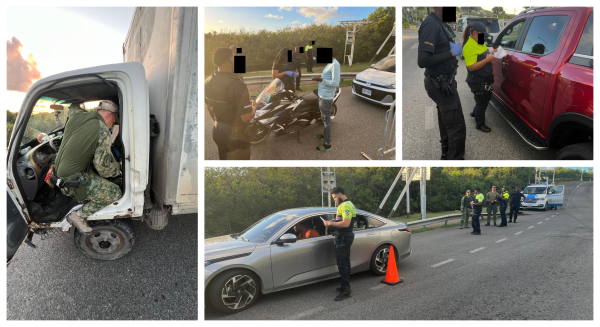 PHILIPSBURG:--- Small donations from across St. Maarten raised a total of US$5,601.47 to support relief efforts in Jamaica following Hurricane Melissa, which struck the island on October 28, 2025, through a public fundraising initiative led by the Buddhist Compassion Relief Tzu Chi Foundation St. Maarten.
PHILIPSBURG:--- Small donations from across St. Maarten raised a total of US$5,601.47 to support relief efforts in Jamaica following Hurricane Melissa, which struck the island on October 28, 2025, through a public fundraising initiative led by the Buddhist Compassion Relief Tzu Chi Foundation St. Maarten.
From November 1 to December 11, 2025, Tzu Chi volunteers collected donations in supermarkets, on streets, and in public areas, encouraging residents to give according to their means. The funds were used directly and transparently to support official relief efforts in coordination with the Jamaica Consulate in St. Maarten.
The donations enabled the purchase of two pallets of essential food supplies valued at US $4,540, including 210 bags of brown rice weighing 10 pounds each, 204 bottles of cooking oil measuring 32 ounces each, 400 packs of pasta weighing 500 grams each, and 420 packs of dried beans. In addition to food assistance, volunteers provided manpower to help the Jamaica Consulate sort and pack donated clothing for shipment.
Funds were also used to cover the full shipping cost of a relief container carrying donated items to Jamaica, with US $2,926.38 paid directly to ensure timely delivery.
Although the container has already been shipped, Tzu Chi St. Maarten said relief efforts are continuing as families in severely affected areas of Jamaica, particularly those connected to Jamaican volunteers in St. Maarten, are still facing housing damage, food shortages, and the loss of basic household items.
Tzu Chi St. Maarten continues to engage the community as additional needs are identified. The Foundation said even modest contributions can make a meaningful difference. “Tzu Chi connects compassion with action,” shared a volunteer. “When many people give a little, together we can accomplish something truly meaningful.”
The foundation expressed gratitude to the public, volunteers, and partners whose support made the relief effort possible, noting that what began as small donations resulted in food supplies, shipped aid, and support for families rebuilding their lives in Jamaica.






 PHILIPSBURG:--- The Tax Administration hereby informs taxpayers that due to an administrative error, a number of “Jaar aanslagen 2020” for Wage Tax and the Premiums AOV/AWW and AVBZ were mistakenly issued.
PHILIPSBURG:--- The Tax Administration hereby informs taxpayers that due to an administrative error, a number of “Jaar aanslagen 2020” for Wage Tax and the Premiums AOV/AWW and AVBZ were mistakenly issued. HARBOUR VIEW, PHILIPSBURG:--- His Excellency Governor Ajamu G. Baly met with the winner and finalists of the Youth Creative Vision Contest, organized in connection with the 2025 Governors Symposium under the theme “15 Years of Constitutional Autonomy: Achievements, Lessons and Prospects.” The informal meeting took place at the Cabinet of the Governor in Harbour View.
HARBOUR VIEW, PHILIPSBURG:--- His Excellency Governor Ajamu G. Baly met with the winner and finalists of the Youth Creative Vision Contest, organized in connection with the 2025 Governors Symposium under the theme “15 Years of Constitutional Autonomy: Achievements, Lessons and Prospects.” The informal meeting took place at the Cabinet of the Governor in Harbour View. During the informal meeting, the students shared their experiences researching and preparing their submissions. They highlighted the need for greater civic education and for greater emphasis on Sint Maarten’s history in school curricula. They also had the opportunity to ask His Excellency questions about his role as Governor and his outlook for the future of Sint Maarten.
During the informal meeting, the students shared their experiences researching and preparing their submissions. They highlighted the need for greater civic education and for greater emphasis on Sint Maarten’s history in school curricula. They also had the opportunity to ask His Excellency questions about his role as Governor and his outlook for the future of Sint Maarten. PHILIPSBURG:--- On Saturday, December 20, 2025, the Sint Maarten Police Force (KPSM), in collaboration with various law enforcement partners, conducted a large-scale multi-agency control operation at the four borders of Sint Maarten. The operation took place between 5:00 PM and 7:00 PM and was carried out in close cooperation with Customs, the Immigration Service, the Sint Maarten Volunteer Corps (VKS), Marines, and the Gendarmerie.
PHILIPSBURG:--- On Saturday, December 20, 2025, the Sint Maarten Police Force (KPSM), in collaboration with various law enforcement partners, conducted a large-scale multi-agency control operation at the four borders of Sint Maarten. The operation took place between 5:00 PM and 7:00 PM and was carried out in close cooperation with Customs, the Immigration Service, the Sint Maarten Volunteer Corps (VKS), Marines, and the Gendarmerie.





